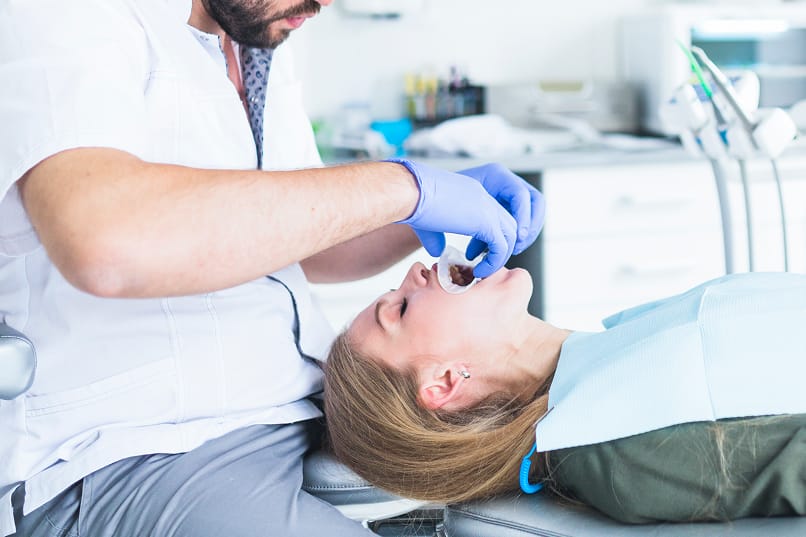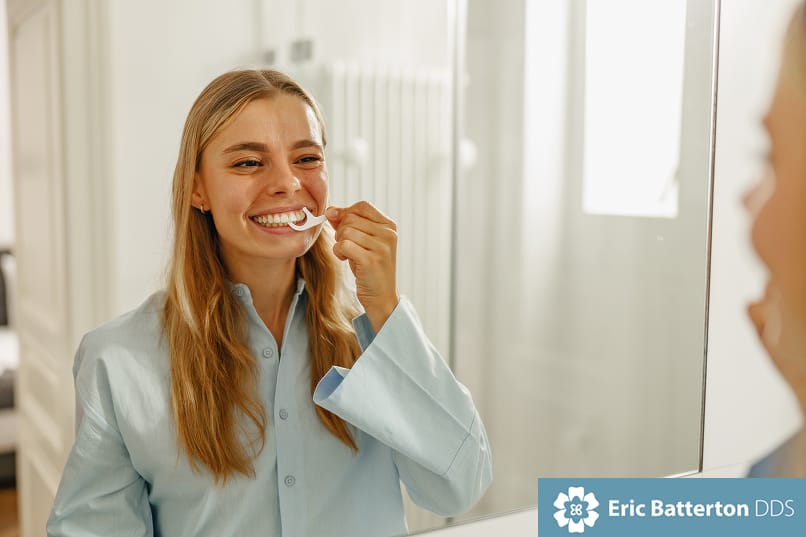You brush twice daily for the full two minutes, floss religiously, and use mouthwash as recommended. You’re committed to excellent oral hygiene, yet your last dental visit revealed a cavity or signs of gum irritation.
This frustrating experience is more common than you might think, and it doesn’t mean you’re failing at oral care. The reality is that even the most dedicated home routine has natural limitations—which is exactly why routine cleanings matter. Professional dental cleanings target buildup and problem areas that daily brushing can’t reach, making them essential for maintaining optimal oral health.

The Hidden World Your Toothbrush Can’t Reach
Despite your best efforts with brushing and flossing, there’s a microscopic environment developing in your mouth that remains beyond the reach of home care tools. When plaque initially forms on your teeth, it starts as a soft, sticky film that regular brushing can remove.
However, within 24 to 72 hours, this plaque begins transforming into tartar—a hardened substance that bonds permanently to your teeth.
Consider how challenging it can be to thoroughly clean every corner of your home, even with the best equipment. Your mouth presents similar challenges, with intricate spaces where your teeth meet your gums, narrow gaps between molars, and natural pockets that form around each tooth. These areas create ideal environments for bacteria to flourish, despite your conscientious daily care.
The areas most susceptible to bacterial buildup include the gum line, spaces between back teeth, and small pockets that naturally develop around teeth over time. Your toothbrush bristles, no matter how advanced, simply cannot navigate these tight spaces with the precision needed for complete cleaning. Similarly, dental floss, while essential, may not reach every surface where plaque accumulates.
Once tartar forms, it becomes impossible to remove through home care alone. This hardened deposit requires professional instruments and specialized techniques for safe, complete removal. This limitation isn’t a reflection of inadequate oral hygiene—it’s simply how our oral anatomy works and why professional care serves as an essential complement to your home routine.

What Happens During Professional Cleanings
Professional dental cleanings involve far more than an enhanced version of your home care routine. These appointments utilize specialized equipment and techniques that address oral health on a completely different level:
- Comprehensive oral examination: Your dental hygienist thoroughly examines your mouth, identifying early signs of potential issues before they develop into symptomatic problems
- Scaling procedure: Using ultrasonic instruments and precision hand tools, all tartar deposits are carefully removed from above and below the gum line
- Professional polishing: Teeth are polished with specialized compounds to eliminate surface stains and create smooth surfaces that resist future plaque accumulation
- Fluoride application: Concentrated fluoride treatment strengthens tooth enamel and provides enhanced protection against decay
- Individualized guidance: Based on their clinical observations, your dental team offers personalized recommendations for optimizing your home care approach
This comprehensive process functions as a detailed health assessment for your mouth. Subtle changes in gum tissue, early signs of tooth wear, or areas where your home care routine might benefit from adjustment can all be identified and addressed before developing into more complex, costly problems.
Related Article: How Long Does a Dental Cleaning Take?
Beyond Just Clean Teeth
The benefits of regular professional cleanings extend significantly beyond achieving a polished, attractive smile. Mounting research continues to demonstrate strong connections between oral health and overall systemic health, showing that the condition of your mouth directly influences your body’s general well-being.
Poor oral health, particularly gum disease, has been associated with serious medical conditions, including cardiovascular disease, diabetes complications, and adverse pregnancy outcomes. When harmful bacteria from infected gums enter the bloodstream, they contribute to inflammation throughout the body. Regular professional cleanings help maintain optimal bacterial balance, potentially reducing your risk of developing these systemic health complications.
Beyond medical considerations, routine cleanings provide the confidence that comes with fresh breath and a healthy smile. There’s significant value in knowing that your oral health is professionally maintained and monitored.
From a financial perspective, routine cleanings represent excellent preventive investments. Early detection of small cavities allows for simple fillings rather than extensive crowns or root canal procedures. Addressing minor gum irritation promptly prevents the need for more intensive periodontal treatments later. Preventive care consistently costs less than reactive treatment.

Addressing Common Concerns
We understand that many people have reservations about scheduling regular cleanings, despite recognizing their benefits. Here are thoughtful responses to the most frequently expressed concerns:
- Time constraints: Most routine cleanings require approximately one hour, with many dental practices offering flexible scheduling, including early morning and evening appointments
- Discomfort concerns: Contemporary dental techniques emphasize patient comfort, incorporating topical anesthetics and gentle ultrasonic cleaning methods
- Cost considerations: Most dental insurance plans provide complete coverage for routine cleanings, and preventive care costs significantly less than restorative treatments
- Absence of symptoms: Many dental conditions, including early-stage gum disease and cavities, remain painless until they reach advanced stages requiring more complex treatment
Feeling apprehensive about dental visits is completely understandable. Your dental team is committed to ensuring your comfort and addressing any concerns you may have. Open communication about your needs helps us provide the best possible experience.
Related Article: How Long After Dental Cleaning Can I Eat?
Your Dental Team as Partners in Health
Routine dental cleanings represent a collaborative partnership between you and your dental team. Rather than critiquing your home care efforts, we work together to build upon the excellent foundation you’ve established through your daily oral hygiene routine.
Every individual’s oral health presents unique characteristics, challenges, and strengths. Approaches that work effectively for others may not be optimal for your specific needs. Through consistent cleanings and examinations, your dental team develops a thorough understanding of your particular requirements and provides personalized recommendations that align with your lifestyle and address your individual risk factors.
This ongoing professional relationship allows us to acknowledge your successes, modify strategies when appropriate, and identify potential concerns early when they’re most manageable and cost-effective to address. Together, we’re maintaining not just your oral health but also supporting your overall well-being while helping you maintain the confidence that accompanies a healthy, beautiful smile throughout your lifetime.
